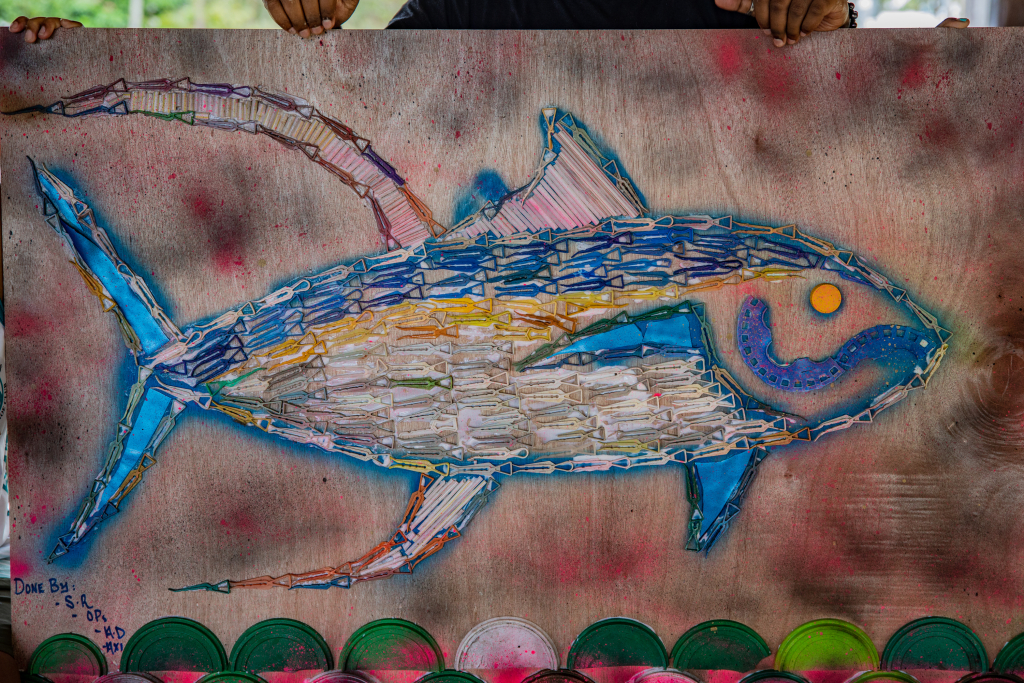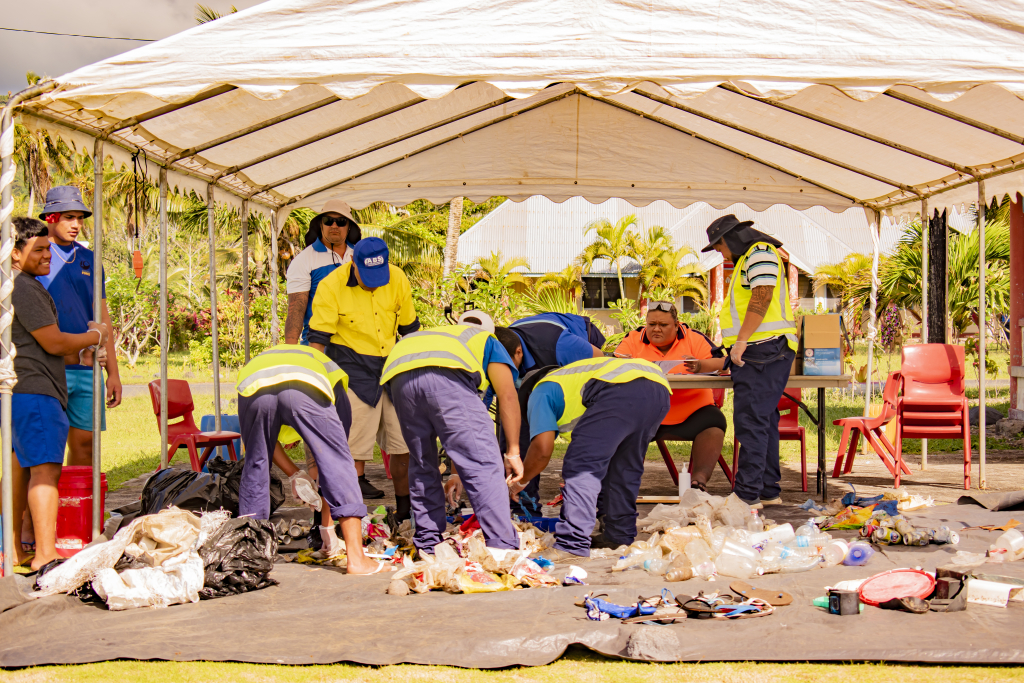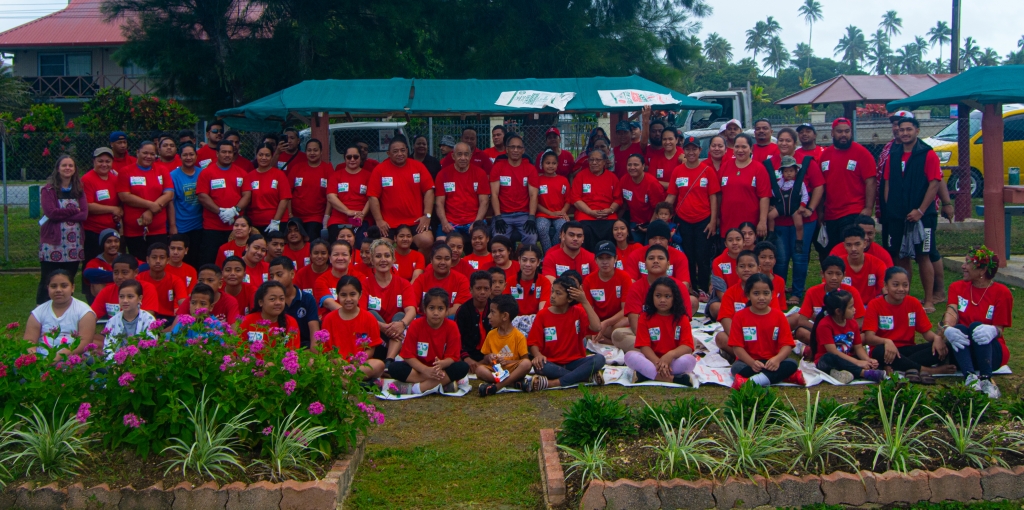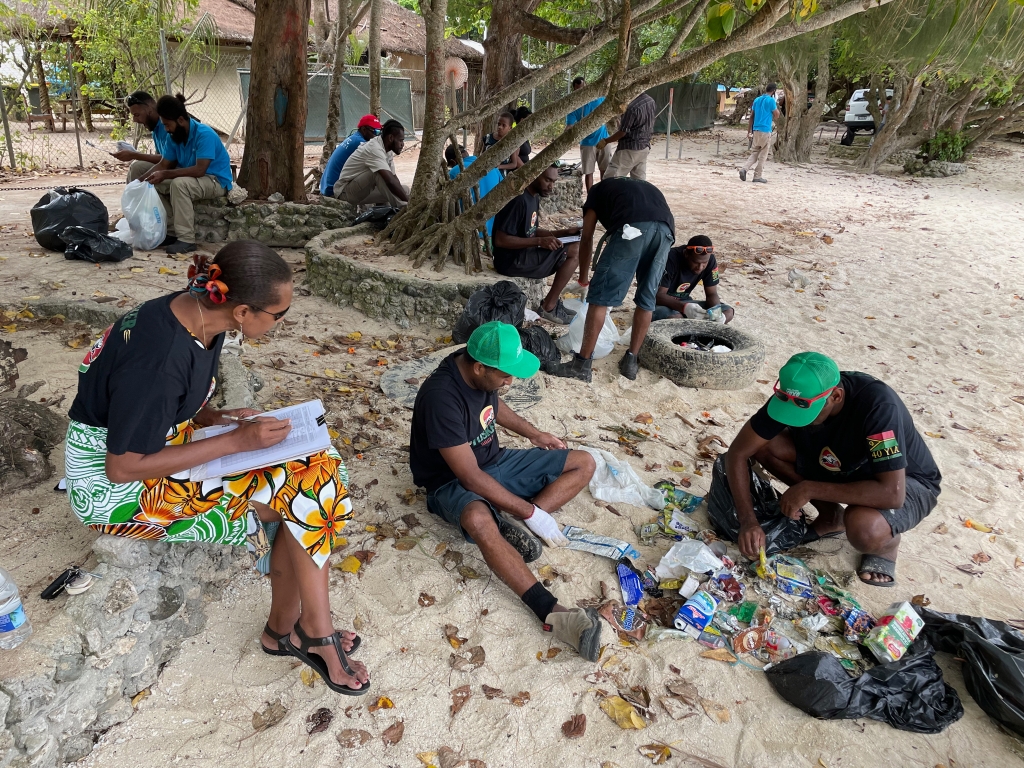
SWAP MARINE LITTER PILOT PROJECTS
The Committing to Sustainable Waste Actions in the Pacific (SWAP) project is committed to keep the Pacific Island Countries (PICs) clean with the goal to reduce pollution and waste in a sustained manner, and create a better sense of community in the surrounding environment. The pilot projects include the Fiji Coastal Litter Project in Fiji, Samoa Marine Litter Pilot Project in Samoa, Honiara Marine Litter Pilot Project in the Solomon Islands, Nuku’alofa Waterfront Clean-Up Campaign in Tonga, and Tackling Marine Litter in Selected Sites in Shefa Province in Vanuatu.
Fiji Coastal Litter Project, Fiji
This youth project is important as the involvement of youth people in coastal clean-up campaigns will educate them on what to do to care for the future environmental concerns. The 14 coastal clean-ups will be repeated after six months, and the coastal litter will be examined using a scientifically robust methodology developed by the OSPAR Convention (the OSPAR Convention is the legal instrument guiding international cooperation on the protection of the marine environment of the North-East Atlantic (NEA)) and the Litter Intelligence Application through Sustainable Coastlines which is recommended by the SWAP project.

Photo credit: Suva Harbour Foundation
Samoa Marine Litter Pilot Project, Samoa
This project aims to contribute to the objectives and goals of SWAP through the marine debris management in Samoa. The clean-up will target the coastal locations of Upolu and Savaii. Furthermore, the project aims to hold clean-up days that occur every three months and to gather data over a six-month period to gauge what the trends in littering are. Samoa will greatly benefit from this project as the country has a sensitive coastal ecosystem and it can impact their primary source of livelihood such as fisheries and tourism.

Photo credit: Adaway
Honiara Marine Litter Pilot Project, Solomon Islands
This project targets emerging waste management and litter issues in the Mataniko River in Honiara City, Solomon Island. Clean-ups of the waste affected areas will happen every three months and the data collected through a litter audit will be used to gain insights and determine reliable trends in littering. The overall goal of this project is to apply a better, more sustainable way of reducing pollution through the coastline of Solomon Islands and to prepare Honiara City for the hosting of the Pacific Games in 2023. Awareness campaigns are also at the forefront of SWAP project objectives as residents and civil society groups will be influenced to participate in the clean-ups.
Nuku’alofa Waterfront Clean-Up Campaign, Tonga
This proposed project aims to conduct a coastal clean-up programme along the Nuku’alofa waterfront, Tonga. This another location where SWAP will conduct a series of waterfront clean-ups to spread awareness in fun and engaging ways for volunteers and stakeholders, and gather information through litter audit using the Litter Intelligence App. Overall, the environmental outcomes of the project include: Marine species restoration, habitat rehabilitation, prevention of disease outbreak and clean air.

Photo credit: No Pelesitiki Campaign
Tackling Marine Litter in Selected Sites in Shefa Province, Vanuatu
Vanuatu is highlighted through the SWAP project due to the challenges faced in waste management, particularly in waste collection, treatment, and proper disposal. If waste is left unmanaged, it can leak into the marine environment as marine debris which can harm the precious ecosystem. SWAP will effectively address the core issues and provide solutions such as assisting the government in progressing its reforms to ban single-use plastics. SWAP also intends to emphasise the implementation of good practices to help support the populations and local authorities.

Photo credit: Islands Roots
Note: This story has been developed with the support of the University of Newcastle (Australia) as part of a partnership between SWAP and the University through Work Integrated Learning. As such, the SWAP coordinator acknowledges all the students involved in this collaboration, including Mrs. Kayla Koulis for this article.
This document has been produced with the financial assistance of the AFD. The views expressed herein can in no way be taken to reflect the official opinion of the AFD.
